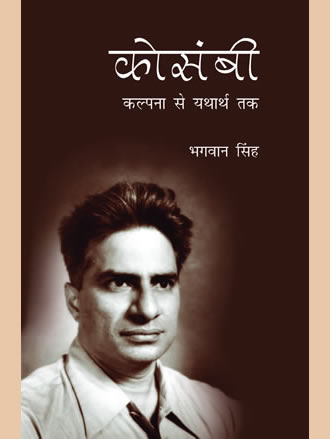Kosambi: From imagination to reality
Kosambi: From imagination to reality is backordered and will ship as soon as it is back in stock.
Couldn't load pickup availability
Genuine Products Guarantee
Genuine Products Guarantee
We guarantee 100% genuine products, and if proven otherwise, we will compensate you with 10 times the product's cost.
Delivery and Shipping
Delivery and Shipping
Products are generally ready for dispatch within 1 day and typically reach you in 3 to 5 days.
- Type: Hindi
- Pages: x + 406
- ISBN: 9788173054341
- Edition: 1st Edition
- Publisher: Aryan Books International
- Size: 15 cm x 22 cm
- Product Year: 2012
Whatever Kosambi said with more authority, giving his own arguments and making many mistakes due to the flaws in his viewpoint, on subjects like feudalism, casteism, Aryanism, primitive communism, Brahmanism, Kosala and Magadha, development of agriculture in the Ganga valley, history and mythology, customs and beliefs, even interpretation of the past through models, the same things were repeated by later Marxists in a more crude form, expanding the mistakes and his own mistakes. If we have to evaluate him in one sentence, then it must be said that he is the first and the last Marxist historian of ancient Indian history and is a symbol of the limitations, strengths and deviations of Marxist thinking.
Kosambi seems to be very good at formulating theories. These theories have been given to him readymade. For example, 'It is more important to change history than to write it' is a variation of Marx's famous aphorism. If Kosambi really believed in this, he should have entered active politics instead of writing history. History cannot be changed, it can be understood and with that understanding, the future can be shaped. In the absence of this understanding or amidst middle class comforts, he kept using Marxist rhetoric and that too with a skewed understanding of Marxism.





